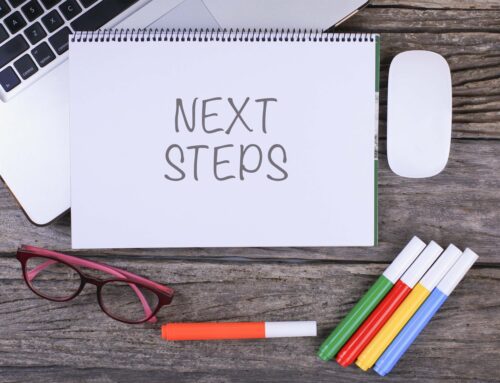A Level results day is always a day of mixed emotions, for staff as well as for students. Ideally, your students would all get the results they need to ensure a smooth transition to the next stage. Of course, we all know that life doesn’t work like that.

Some are disappointed that they haven’t done as well as they hoped, others might have done significantly better than expected. Your aim is to support each student through these situations, whatever their individual circumstances.
3 top tips for teachers and tutors
- Know your stuff. You will, especially if you’ve dealt with several results days over the past few years.
- If you’re new or unsure, be ready to ask or find out. UCAS runs the results and admissions system so their website is the best source of information. (All the links in this article take you to the relevant UCAS page).
- Don’t panic! And don’t let your students panic. They, and you, need to keep a clear head as some of them will have difficult decisions to deal with, often with limited time.
And, most important, look after yourself. It could be a long day, so make sure you eat, drink and can unwind afterwards.
Be ready for results
Encourage your students to get to school/college early, in case they have queries or disappointments. They need to bring, or have access to, all their UCAS information: ID, password, personal statement, etc. And a charged-up mobile phone!
On the day
Universities receive the results in advance so UCAS can update students’ Track by 8am on results day. Students may arrive with you on results day knowing whether or not they have a uni place, even if they haven’t yet received their results. Some may be confused by what’s on their Track and puzzled over how this relates to their results. You can support your students by helping them to strike the balance between acting quickly so they don’t miss out, while still taking the time they need to make the right decision.
Whatever they’ve achieved they might still be unsure what to do next. Here’s some common situations you may be asked about:
Q I’ve got my results and my place has been confirmed. What do I do now?
A Congratulate yourself – and wait. The uni will be in touch to tell you what you need to do next. Enjoy what’s left of the summer!
Q My results meet the conditions of my offer, but my Track doesn’t show a confirmed uni place
A Be patient and keep checking your Track. Sometimes there is a delay while the universities deal with the results and pass the data to UCAS. If you’ve not heard from the uni after a couple of hours, try phoning them (but remember they will be busy).
Q I missed the grades I needed, but I’ve still been offered a place on the course I applied for
A Congratulations! The uni is still prepared to take you, even with slightly lower grades.
Q I’ve been offered a place but I’ve changed my mind
A If you’re absolutely certain that you don’t want the place you’ve been offered you can decline your firm place. But think carefully before you do this as there’s no going back. If you still want to look for another uni place, you can use Clearing.
Q I didn’t get the results I needed. The uni has offered me a place but it’s different from what I originally applied for.
A This is called a changed course offer. They might offer you a different course, start date or entry point (such as a foundation year). It’s your choice whether or not to accept and you have a few days to make your decision. If you decline, you could still use Clearing.
Q My grades are much better than I expected. What are my options?
A Well done! You can accept your first choice offer, knowing that you are well-qualified for the course. Or you may decide to see whether those high grades could get you onto a different course, using Adjustment. This allows you to keep your confirmed place while you look around at other courses. You’ll need to do some research and talk to the university admissions staff.
Q My Track says I’m in Clearing. What does this mean?
A You’ve not been offered a place at a uni, so you are free to look for an unfilled place, using Clearing to search and apply.
How does Clearing work?
Each year there are thousands of places available – some unis even keep places back to offer in Clearing. Students are free to search any uni or course, not just the ones on their original UCAS application. Once they have found a course (or courses), to apply for they need to phone the uni’s Clearing hotline (lines will be very busy). Student may have a mini interview over the phone, so they need to be clear why they are applying for that course.
5 top tips to get through Clearing
- Use UCAS’s list of Clearing places. Lists in newspapers may not be up to date.
- Places can go quickly (lots of people are using Clearing!) but new vacancies can be added too.
- Original UCAS personal statements can’t be changed. A student applying for a course that is very different from their original choice can offer to send a revised statement.
- Students may verbally accept more than one offer, but can only enter one choice onto Track.
- Clearing gives students a few days to reply to an offer. Students can use this time to visit the uni (or take a virtual tour). Suggest that they check on accommodation availability too.
Alternatives to university
Students who end up without a uni place will need support in deciding what to do next. Around results day it may seem to them as though they have no alternatives. But, as you know, there are plenty for them to consider. You can help your students see that they could…
- Apply again for entry in 2020. They can start on their application straightaway and submit it to UCAS from 4th September. Applying after results can make the process less stressful.
- Find employment. This could be something directly relevant to their uni and/or career choice or just to earn some money.
- Look at alternatives such as School Leaver Schemes and Apprenticeships. They always involve training towards a qualification, which could be a degree.
Reassure your students that not everyone goes straight from school to university. Taking a year or 2 away from education can help them decide whether and why they want to go to uni. Working or travelling may open up new opportunities and give a different perspective on life.
Postscript
The stress of waiting for results to confirm university places may be a thing of the past as a review was launched recently (July 2019) to look into whether ‘current admissions processes serve the best interests of students.’ It’s due to report next year so, unfortunately, it won’t help this year’s A level candidates.
Susanne Christian is a careers adviser, writer and member of CDI’s Editorial Board. She has worked with clients of all ages in schools, colleges and the community. Author of 8 careers titles, Susanne has contributed content to numerous websites where clients include the NHS, UCAS, National Careers Service, DWP and Pearson.





